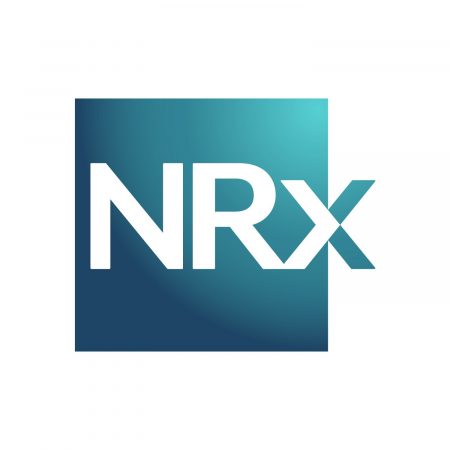
NRx Pushing Deep into the Mind Science Space
By Mark Terry
May 16, 2023
Radnor, Penn.-based NRx Pharmaceuticals is pushing hard on the development of its lead compound, NRX-101, which is currently in a Phase IIb/III clinical trial for Suicidal Treatment-Resistant Bipolar Depression.
Stephen Willard, Chief Executive Officer and Director of NRx, said in a conference call discussing the company’s recent quarterly report that the company was “off to a great start as we continue to build our brain health franchise.”
Among the quarter’s milestones, the company met with the FDA to discuss its plan to expand the intended use of NRX-101 from the original patient population with acute suicidality who might be treated in the hospital to a broader population with what the company calls Treatment-Resistant Bipolar Depression, or is technically dubbed subacute suicidal ideation. These patients are treated in the outpatient setting and are the target population of the ongoing study.

“The risk of suicide is very high in this population,” and to the best of his knowledge, NRx is the “first company to try to bring therapy to people whose only treatment option is electroshock therapy,” Willard said.
The drug is an oral, fixed-dose combination of D-cycloserine and lurasidone. NRX-101 targets the brain’s N-methyl-D-aspartase (NMDA) receptor. The Phase II STABIL-B trial of the drug in Severe Bipolar Depression with Acute Suicidal Ideation & Behavior (ASIB) showed a significant improvement over existing therapy in decreasing depression and suicidality compared to placebo when patients received the drug after a single dose of ketamine.
Based on the STABIL-B results, the FDA granted a Special Protocol Agreement and Breakthrough Therapy Designation for NRX-101 in patients with Severe Bipolar Depression with ASIB.
The company also received a Biomarker Letter of Support. These letters describe the FDA Center for Drug Evaluation and Research (CDER)’s thoughts on the potential value of a biomarker while encouraging continued evaluation. It doesn’t qualify the biomarker or endorse a specific biomarker test or device. The goal is to enhance the visibility of the biomarker, encourage data sharing, and potentially stimulate more studies.
Willard indicated they believe there is “potential for commercial launch in 2024” and “we’re on track for Phase IIb/III data later this year.”
The company’s meeting with the FDA in the quarter also resulted in guidance from the agency for the completion of NRx’s manufacturing for Phase III/commercial stage investigational product. This resulted in the Phase IIb/III trial to be upgraded, with the potential for use as a registrational filing.
In the first quarter, the trial’s independent Data Safety Monitoring Board (DSMB) reviewed safety and unblinded efficacy data in the first 50 patients. Willard said, “There was no futility signal at this time….” And the “DSMB recommended that the trial continue as planned.”
In addition, NRx refined the way it validates the psychometric rating used to evaluate the efficacy endpoint in the trial. It depends upon a team of veteran rates who train independent site rates as well as monitor the technical quality of each rating. It set a standard of 90% or better concordance between its veteran rating team and site raters. The standard was met for all study participants “whose ratings were obtained in their primary language and management believes that this standard can be maintained for the duration of the trial.”
In April, NRx contracted with 1nHealth “to broaden recruitment,” Willard said. The recruitment could cover up to 45 U.S. states as part of the enlarged study. It also broadened its previously disclosed relationship with RTP-based Science 37, a CRO that focuses on decentralized clinical trials. This agreement plans to enroll participants identified via 1nHealth’s recruitment initiative and randomized them for inclusion in the broadened study.
Willard also reported the company is planning to study NRX-101 in post-traumatic stress disorder (PTSD). It hopes to begin planning for a Phase II trial in the second quarter for this indication, with plans to open enrollment this year.
Jonathan Javitt, company Founder and Chief Scientist, said in the conference call, “We do anticipate filing the IND this year” and “from a registration perspective, in other words, sample size, we won’t know until we have discussions with the FDA.”
He added that the endpoints in PTSD are different than for bipolar depression, but there were overlaps in symptoms, including depression and suicidality.
For the first quarter, NRx reported $3.7 million in R&D expenses compared to $5.5 million in the same period in 2022. The drop of $1.8 million was primarily due to a reduction in clinical trials and development expenses associated with Zyesami. Zyesami was provided under the FDA’s Expanded Access Protocol to treat Critical COVID-19 patients with respiratory failure. In May 2022, the DSMB recommended halting analysis of the drug in this patient population due to futility.
Seth Van Voorhees, Chief Financial Officer and Treasurer of NRx, said, that at the end of the quarter, the company had $16.5 million in cash and cash equivalent, “which is expected to fund the company’s operations through readouts in the fourth quarter.”
Willard concluded, saying, “The past quarter has been incredibly productive, and we are uniquely positioned for success in 2023.”
- About the Author
- Latest Posts
Mark Terry is a freelance writer, editor, novelist and ghostwriter. He holds a degree in microbiology & public health and spent 18 years in infectious disease research and clinical and research genetics prior to his transition to a writing career. His areas of expertise include biotechnology, pharma, clinical diagnostics, and medical practice management. He has written literally thousands of articles, as well as market research reports, white papers, more than 20 books, and many other written materials. He currently lives in Michigan with his family.







